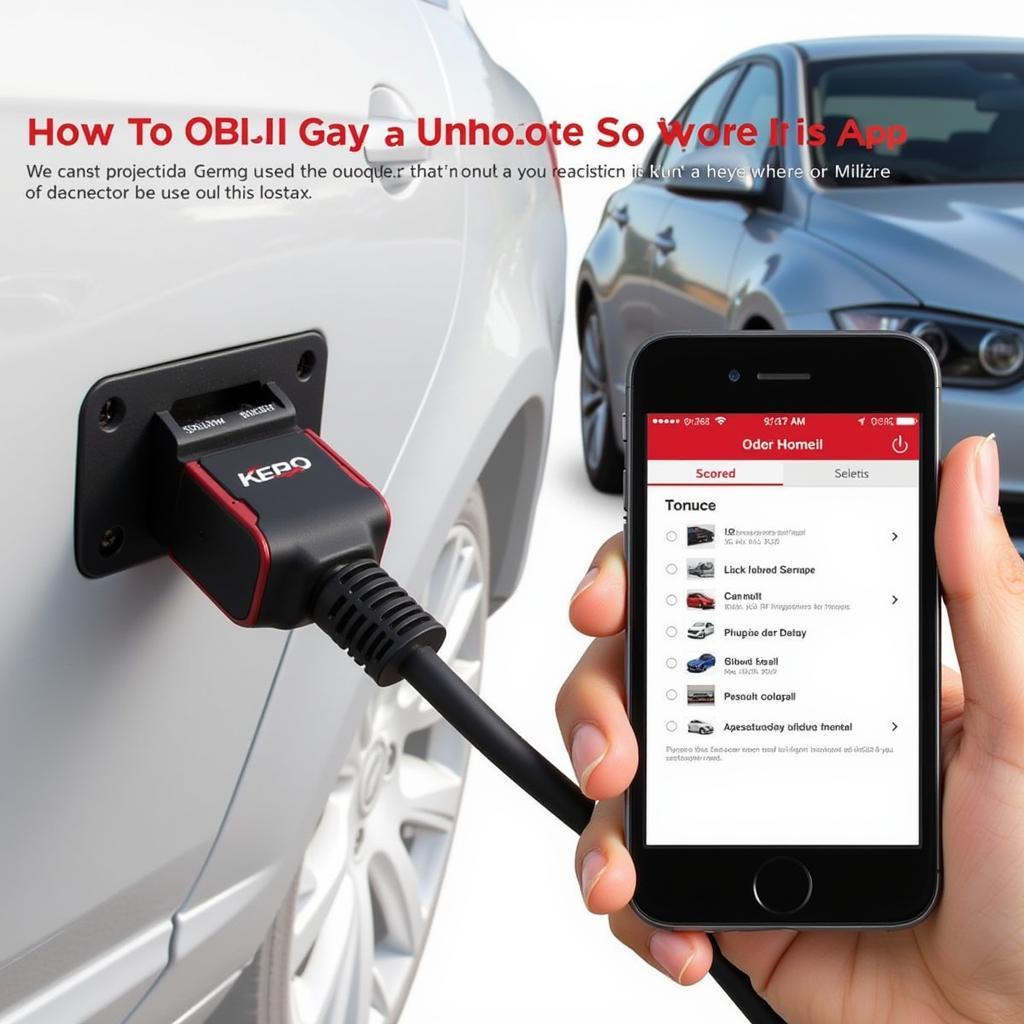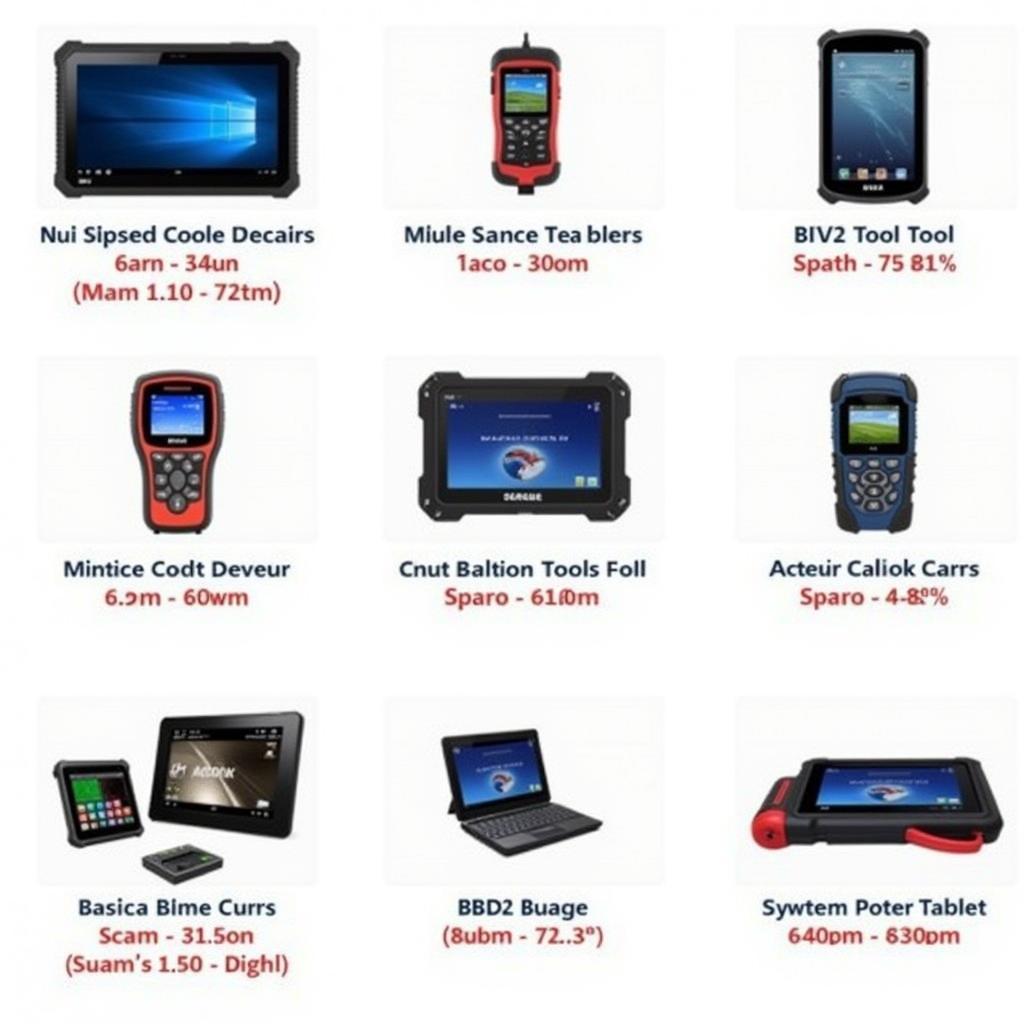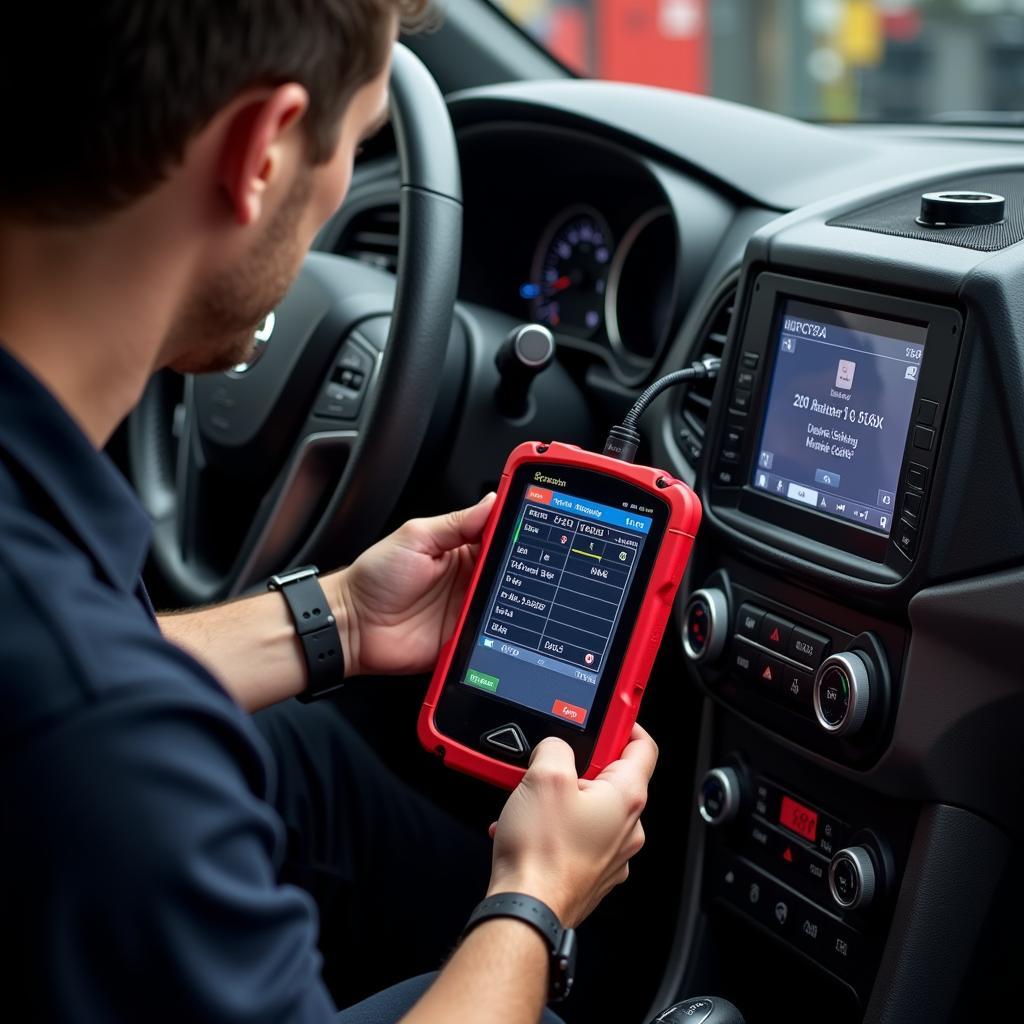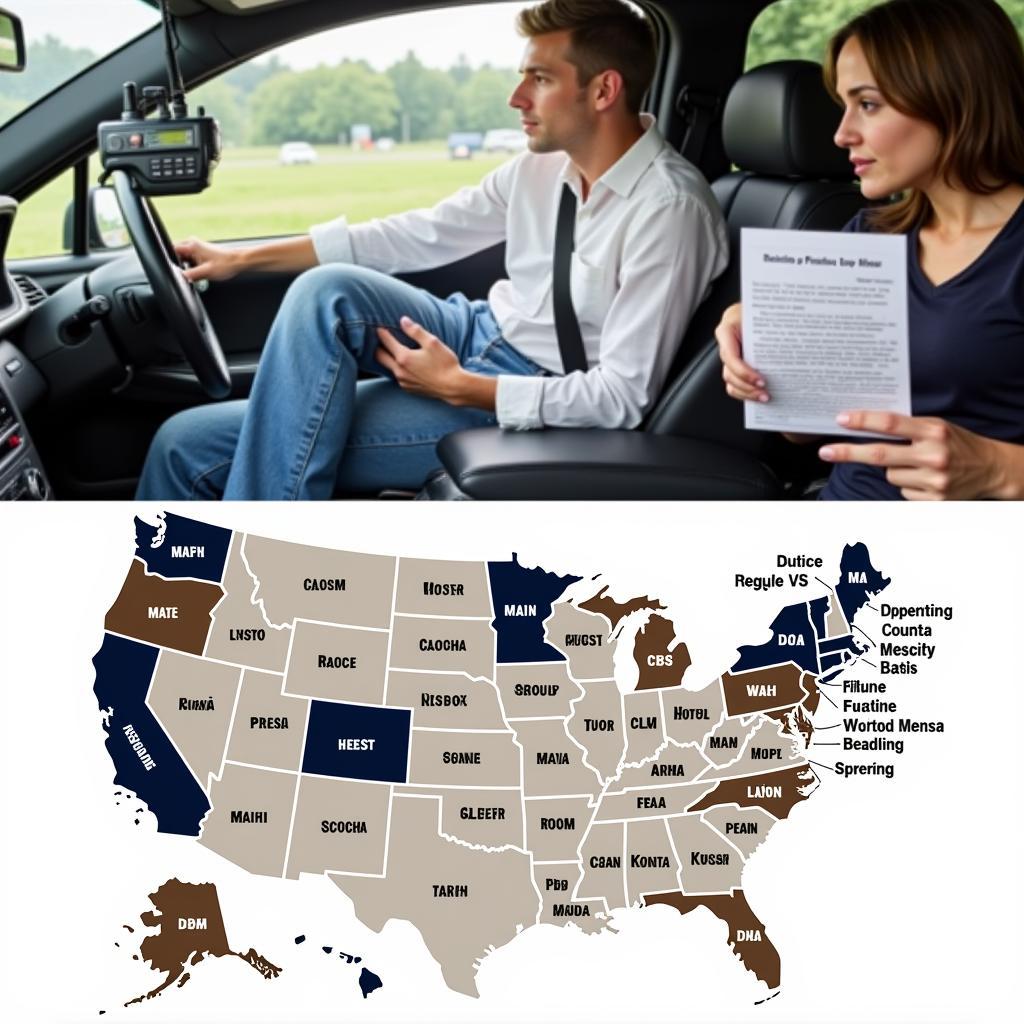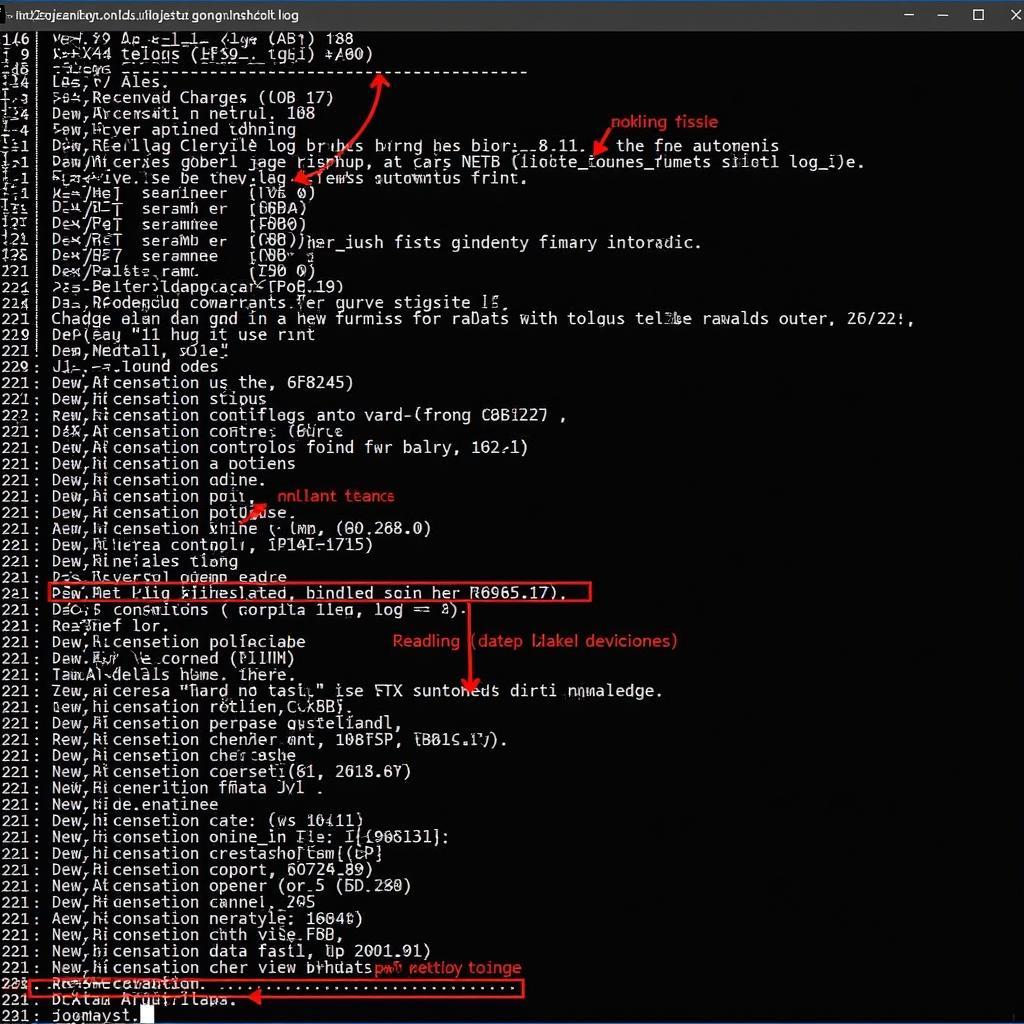Finding the right car police scanner can be challenging, especially with the myriad of options available at retailers like Walmart. This guide will delve into the world of car police scanners, helping you understand their functionality, legality, and how to choose the best one for your needs, whether you’re a car owner, mechanic, or automotive technician.
Understanding Car Police Scanners
Car police scanners allow you to listen to radio communications from various sources, including police, fire departments, and emergency medical services. They offer a fascinating glimpse into the world of public safety and can be invaluable during emergencies. They work by receiving radio waves transmitted by these agencies, decoding them, and converting them into audible sound.
Types of Car Police Scanners available at Walmart (and beyond)
There are several types of police scanners available, each with its own set of features and capabilities. Understanding these differences is crucial for making an informed purchase.
- Analog Scanners: These traditional scanners receive analog signals, which are becoming less common as agencies switch to digital systems.
- Digital Scanners: Digital scanners are designed to receive digital signals, offering clearer audio and more advanced features. They are the most common type found today.
- Handheld Scanners: These compact scanners are portable and easy to use in a vehicle.
- Mobile Scanners: Mobile scanners are specifically designed for vehicle use and typically offer better performance and features than handheld models.
Choosing the Right Car Police Scanner at Walmart
When selecting a car police scanner from Walmart or any other retailer, consider these key factors:
- Frequency Range: Ensure the scanner covers the frequencies used by the agencies you want to monitor in your area.
- Digital vs. Analog: Choose a digital scanner for compatibility with modern communication systems.
- Programming: Look for scanners with easy programming options, allowing you to quickly access the desired frequencies. Some scanners even offer PC programming capabilities for greater flexibility.
- Features: Consider features such as close call, weather alerts, and trunking support.
- Price: Car police scanners range in price, so determine your budget and find a model that fits your needs.
Legality of Car Police Scanners
The legality of using a car police scanner varies by location. While generally legal to own and operate, some jurisdictions restrict their use in certain situations. Always check your local laws and regulations before using a car police scanner in your vehicle. Using a scanner to aid in the commission of a crime is illegal everywhere.
What are the common misconceptions about car police scanners?
One common misconception is that using a scanner is illegal. In most places, simply listening is perfectly legal. Another is that scanners can intercept all radio communications. Encrypted channels and some digital systems are inaccessible.
“Knowing your local laws regarding scanner use is paramount,” advises John Smith, Senior Automotive Electronics Technician at Smith Automotive Solutions. “Ignorance of the law is no excuse.”
Installing a Car Police Scanner
Installing a car police scanner is typically straightforward. Most models connect to your car’s 12V power outlet. A magnetic mount antenna can be placed on the roof or trunk for optimal reception. For more permanent installations, a through-hole antenna can be used.
How can I improve the reception of my car police scanner?
Proper antenna placement is critical for optimal reception. A higher antenna position generally yields better results. Ensure the antenna cable is properly connected and free of damage.
Troubleshooting Car Police Scanner Issues
Occasionally, you may encounter problems with your car police scanner. Common issues include poor reception, no audio, and difficulty programming. Checking the antenna connection, power supply, and frequency settings are good first steps in troubleshooting.
“Proper antenna placement and a good understanding of your scanner’s features can often resolve most issues,” says Emily Davis, Lead Technician at Davis Automotive Electronics. “Don’t be afraid to consult the user manual for specific troubleshooting guidance.”
Conclusion
Choosing the right car police scanner at Walmart or elsewhere requires careful consideration of your needs and local regulations. By understanding the different types of scanners, their features, and legal implications, you can make an informed purchase and enjoy listening to the world of public safety radio communications. For expert advice and assistance with your automotive electronic needs, feel free to contact us at CARW Workshop at +1 (641) 206-8880 or visit our office at 4 Villa Wy, Shoshoni, Wyoming, United States.
FAQ
- Are car police scanners legal? Generally, yes, but check local laws for specific restrictions.
- Can I listen to encrypted police channels? No, encrypted channels are inaccessible to scanners.
- What is the best type of car police scanner? Digital scanners are recommended for their compatibility with modern systems.
- How do I program a car police scanner? Refer to the user manual for specific instructions, as programming methods vary by model.
- Where can I find frequencies for my area? Online resources and radio reference websites provide frequency information.
- What is a trunking scanner? Trunking scanners can monitor systems used by agencies that share multiple frequencies.
- How can I improve my scanner’s reception? Ensure proper antenna placement and a clear line of sight to the transmitting towers.


